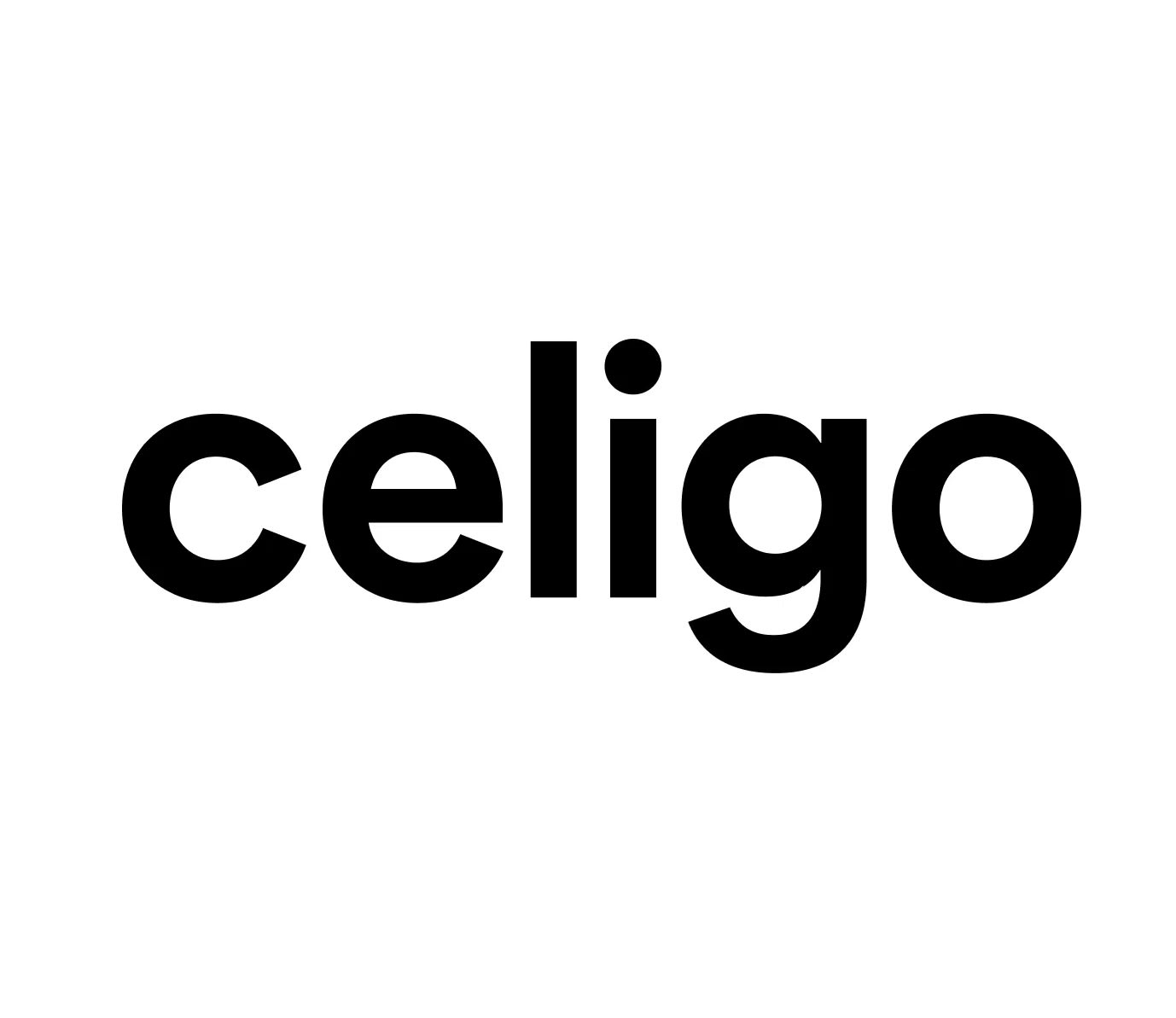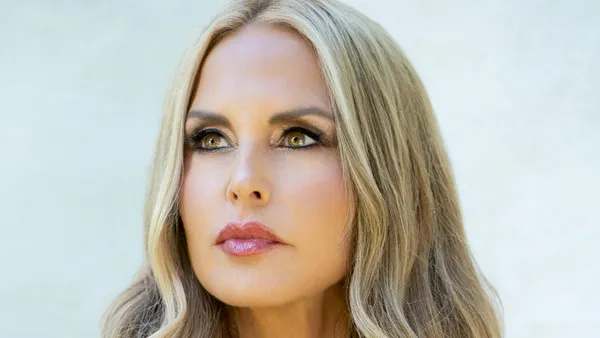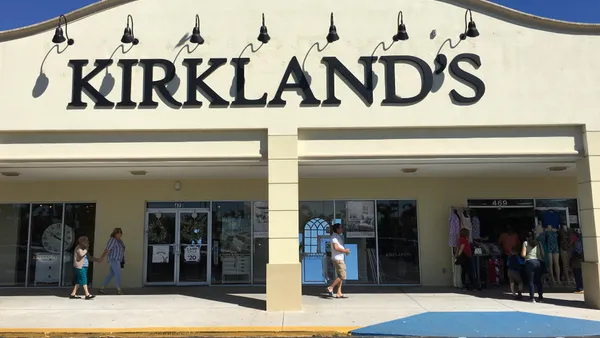Dive Brief:
-
Coach on Tuesday reported that fourth quarter revenue totaled $1.13 billion, missing Thomson Reuters analyst expectations for $1.51 billion cited by CNBC, and down slightly from $1.15 billion in the prior year because of an additional week in fiscal 2016. Excluding the additional week in the prior-year results, net sales in the quarter rose 6% on a reported basis and 7% on a constant currency basis, according to a company press release.
-
Q4 net income rose to $152 million, or 53 cents per share, from $82 million, or 29 cents per share, in the year-ago period. Non-GAAP earnings were $142 million or 50 cents per diluted share, the company said, up from non-GAAP net income in the year-ago period of $126 million or 45 cents per diluted share, (including $0.07 associated with the additional week). That beat Thomson Reuters analyst expectations of 49 cents per share cited by CNBC.
-
The company expects revenues for fiscal 2018 to grow some 30% from the prior year to between $5.8 and $5.9 billion, with low-single digit organic growth and the acquisition of Kate Spade adding more than $1.2 billion. That’s softer than Thomson Reuters analyst expectations cited by CNBC for $2.49 per share. The company also said it expects fiscal year 2018 revenue to land between $5.8 billion and $5.9 billion, missing estimates cited by CNBC for $6 billion.
Dive Insight:
The upscale accessories brand’s strategy of pulling back on department store and outlet sales hurt its North American wholesale growth by some 60 basis points in the quarter, the company said. Q4 gross profit totaled $755 million on a reported basis, while gross margin for the quarter was 66.5% on a reported basis, down from 67.8% in the prior year. On a non-GAAP basis, gross profit totaled $757 million, while gross margin was 66.8% up from 67.8% in the prior year.
That reflects a long-term strategy that drew kudos from many analysts, including GlobalData Retail Managing Director Neil Saunders, who noted that, with a week less to play with, sales in North America actually grew 5% and in Europe 7% on a constant currency basis.
"The company is now lapping the anniversary of when it first started to dial back its involvement with department stores, and we are encouraged that the impact has been positive for the brand, helpful to profit, and ultimately beneficial for sales," Saunders said in an email to Retail Dive. "The decision to reduce reliance on department stores, while an obvious move, is justified by the increasing gap between their selling environments and those in Coach's own stores."
The comeback ushered in under CEO Victor Luis is nearly complete, according to Saunders, though the company now must apply some of that to its Kate Spade acquisition. As with the department store exit, that could hurt sales at first, but all to the better.
"[T]here will be some short-term pressure as Coach pulls Kate Spade back from wholesale and its exposure to unfavorable channels, as well as reduces the number of flash sales with which the brand is involved," Saunders said. "In essence, Coach is hoping to rebuild the Kate Spade brand in the way it has done with its own label. If it succeeds, and we believe it will, it will emerge as a significant luxury player and one that, ultimately, will probably be keen to make further acquisitions."
Coach's success could hurt in another way, by forcing it to improve on stellar results. "In addition to the sales uplifts, Coach's efforts delivered an 86% improvement in net income, even after a higher interest expense," Saunders noted. "This is a solid gain, but it is clear that on both this and the sales front, future contributions from Coach are likely to be less generous. This is not down to any particular problem with the brand, but merely a reflection that the recovery program will lap tougher comparatives in the year ahead."














